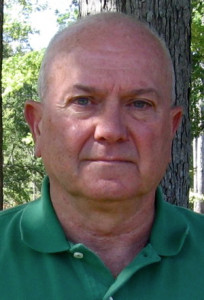Rascals case in brief
In the beginning, in 1989, more than 90 children at the Little Rascals Day Care Center in Edenton, North Carolina, accused a total of 20 adults with 429 instances of sexual abuse over a three-year period. It may have all begun with one parent’s complaint about punishment given her child.
Among the alleged perpetrators: the sheriff and mayor. But prosecutors would charge only Robin Byrum, Darlene Harris, Elizabeth “Betsy” Kelly, Robert “Bob” Kelly, Willard Scott Privott, Shelley Stone and Dawn Wilson – the Edenton 7.
Along with sodomy and beatings, allegations included a baby killed with a handgun, a child being hung upside down from a tree and being set on fire and countless other fantastic incidents involving spaceships, hot air balloons, pirate ships and trained sharks.
By the time prosecutors dropped the last charges in 1997, Little Rascals had become North Carolina’s longest and most costly criminal trial. Prosecutors kept defendants jailed in hopes at least one would turn against their supposed co-conspirators. Remarkably, none did. Another shameful record: Five defendants had to wait longer to face their accusers in court than anyone else in North Carolina history.
Between 1991 and 1997, Ofra Bikel produced three extraordinary episodes on the Little Rascals case for the PBS series “Frontline.” Although “Innocence Lost” did not deter prosecutors, it exposed their tactics and fostered nationwide skepticism and dismay.
With each passing year, the absurdity of the Little Rascals charges has become more obvious. But no admission of error has ever come from prosecutors, police, interviewers or parents. This site is devoted to the issues raised by this case.
On Facebook
Click for earlier Facebook posts archived on this site
Click to go to
Today’s random selection from the Little Rascals Day Care archives….
Click for earlier Facebook posts archived on this site
Click to go to
Today’s random selection from the Little Rascals Day Care archives….
Therapists, don’t commingle your forensic, therapeutic roles

Kirk
June 18, 2018
“Ted Cross, a senior research specialist at the University of Illinois School of Social Work, [said] separation of the two interventions – forensic and therapeutic – is critical for the child, but is also important for practical reasons: ‘You don’t want the therapeutic work to taint a criminal investigation. If a child is in therapy at the same time that the forensic interview takes place, the attorney representing the offender can say the therapist planted the idea of abuse in the child’s head.’.
“This point is of particular importance in the wake of high-profile cases such as the McMartin Preschool trial during the 1980s, in which therapists’ interviewing techniques were so suggestive that the children falsely accused their teachers of abuse….”
– From “How to Build a Space to Support Abused Children” by Mimi Kirk at Atlantic Cities (March 29)
Did the Little Rascals therapists offer children any therapy at all? What do you think?
![]()
What, no applause from Attorney General Easley?
June 17, 2013
“I don’t know if Bob Kelly and the staff of that now-infamous Edenton day care center abused those children… But I do know, beyond any reasonable doubt, that something is dreadfully wrong in that case, and I applaud the (N.C.) Court of Appeals ruling that ordered a new trial for Kelly and Kathryn Dawn Wilson. Everyone who cares about justice should join in a standing ovation for the court’s common-sense ruling.
“Fat chance of that.
“The prosecution, led by Attorney General Mike Easley, has already begun its campaign to discredit the ruling as a nitpicking exercise that found minor technicalities in the state’s longest and most expensive trial….”
– From “Justice unlikely for Kelly” by News & Observer columnist Dennis Rogers (May 9, 1995)
Easley said he would petition the N.C. Supreme Court to review the cases immediately: “The decision casts no doubt on the credibility of the children or the integrity of the investigation…. In both cases, the facts supporting the convictions were clear and overwhelming. (The appeals court) disregarded these facts and misapplied the law.”
The Wilson Daily Times opined that “Easley’s vow to appeal the overturning is futile, and he knows it. … Easley tried to play tough prosecutor… implying the convictions were thrown out because of technical indiscretions. But he well knows that the errors in the trials were substantial and egregious (and) made a mockery of justice.”
Four months later, when the N.C. Supreme Court upheld the Court of Appeals, Easley had lost his bravado. “All prosecutors know that cases involving children weaken with age,” he said. “A retrial in this matter will be extremely difficult.”
The ugly truth about ‘Nancy Lamb’s state of mind’
 March 14, 2012
March 14, 2012
“Prosecutor Nancy Lamb practiced a little ‘voodoo’ psychology by telling the jury that when Dawn Wilson held and played with her child during breaks in the trial, it wasn’t because she loved the child – it was all a show for the benefit of the jury.
“No psychologist could have accurately reported on the state of mind or the motives of Wilson when she played with her child. However, had a psychologist known that Wilson had been offered a plea bargain which included no jail time if she pointed the finger at the others, and had told prosecutors to ‘Find yourselves another patsy,’ that psychologist might have known something about Nancy Lamb’s state of mind when she made those statements.”
– From “Due Process Is Good Psychology,” article in
Michigan Lawyer Weekly by Michael G. Brock
Defending this smear, one of many, Lamb said Wilson was presenting herself as a good mother, and “We had to remove that mask.”
In 1995 the N.C. Court of Appeals overturned her conviction. And then of course the prosecutors rushed to apologize to Dawn Wilson for their disgraceful vilification.
Bob Kelly: ‘I had nothing to be ashamed of’
Oct. 11, 2011
In 1989 Bob Kelly was charged with 100 counts of child molestation.
In 1992 he was convicted and sentenced to 12 consecutive life sentences.

In 1995 his conviction was overturned and he was released from Central Prison.
“It was the best six years of my life,” he says of his time behind bars, “because it set me up for the rest of my life.”
When he walked out, Kelly was a man who had determined “never to feel ashamed, because I had nothing to be ashamed of.”
Today, remarried and retired at 63, he lives in a tidy suburban house just outside Sanford.
Perhaps the anger he still feels toward those who conspired to imprison him has been compartmentalized.
His attention goes to gardening (“500 pounds of tomatoes this year”), writing and visiting inmates, carving walking sticks out of old Christmas tree trunks, playing Sudoku, hitting golf balls and reading only those Westerns in which “the good guy always wins in the end.”
And he still cooks and cans the spaghetti sauce he once served every Friday at the Little Rascals Day Care Center.
“Freedom don’t ever get old,” he says.











0 CommentsComment on Facebook